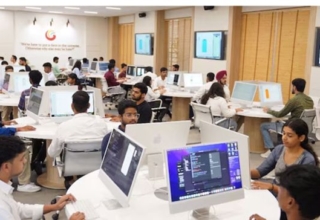
Rajesh Bhatia, founder-managing director of Tree House Education & Accessories Ltd, underscores the significance of skills that foster real-world adaptability and entrepreneurial thinking on National Youth Day (January 12)

Success in the workplace and the competitive job market isn’t solely dependent on top grades or credentials. Employers today are also looking for effective communication, problem-solving, leadership and management skills. While qualifications are essential, employers also value a balance of practical skills and theoretical knowledge. The ‘Future of Jobs Report 2023’ by the World Economic Forum that identifies key skills for success, emphasizing attitudes like empathy and active listening, along with cognition, self-efficacy, and practical skills applicable to real-world problem-solving. Let’s discuss five practical skills that will help our youth navigate the future with much confidence:
Real-world applicability
Practical skills are essential for addressing real-life challenges at work and in everyday situations. The key is to learn and enhance skills that directly apply to the practical problems encountered in real life. For instance, while having a driving license is a qualification, the practical skill of manoeuvring the vehicle into tricky parking spots is invaluable. Similarly, integrating practical skills into academics is essential to empower individuals and bridge the gap between theory and its real-world application.
Creativity and Entrepreneurial thinking
In its report on the 12 Core Life Skills, UNICEF highlights that creativity enables learners to adapt to various life situations by generating solutions, methods, and processes to address both old problems and contemporary challenges. Only through creative thinking can individuals devise valuable practical solutions and foster innovation. Skill-based learning nurtures creativity and an entrepreneurial spirit at the school level, which will help children fare well as adults when they embark on their respective career trajectories. They can then take calculated risks and break new ground in their chosen fields.
Helps to build adaptability
Skill-based education ensures that a learner becomes skilled, adaptable, and more competent. It not only teaches new skills but also makes them aware that they can apply these skills in different areas of interest. Engaging in practical learning offers valuable hands-on experience, exposing individuals to even uncertainties and equipping them to navigate diverse situations. Encounters with failure become opportunities for understanding effective strategies. This approach cultivates an open-minded and flexible mindset that is more beneficial in real-world scenarios.
Versatile career paths
Practical skills serve as the foundation for a prosperous career, showcasing a person’s capacity to accomplish different tasks, tackle challenges, and contribute value in a professional setting. As students acquire practical skills like communication, leadership, accountability, and time management, they position themselves for success in their careers and smoothly navigate their professional journey. Additionally, individuals possessing practical skills can shape their careers based on their interests, passions, and unique abilities.
Holistic growth
The Union Ministry of Education emphasises through the National Education Policy (NEP) that schools should focus on ensuring that children not only learn but, more importantly, learn how to learn. Such a practical approach to education will aid in the holistic development of students, making education more experiential, integrated, inquiry-driven, discovery-oriented, learner-centred, discussion-based, flexible, and enjoyable. As suggested by NEP, it is also essential to include basic arts, crafts, humanities, games, sports and fitness, languages, and values, in addition to science and mathematics, to develop the practical capabilities of young learners.










